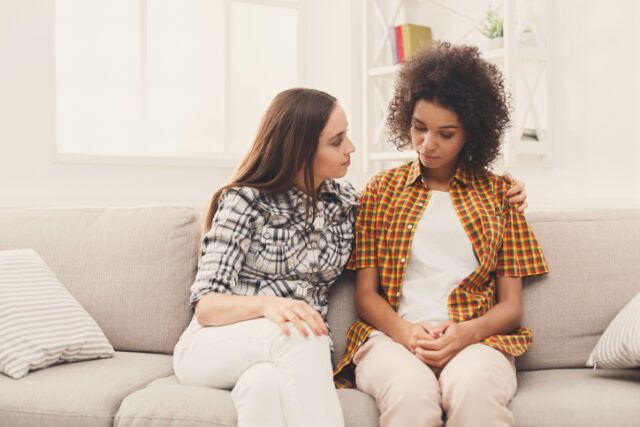Having a good heart is something to be proud of, especially these days, where cruelty is so common.

It means you truly care about people, you have empathy in spades, and you want to make the world a better place. However, being kind-hearted comes with its fair share of downsides that sometimes make you wish for a split second that you were a little more hard-faced.
1. People might take advantage of your kindness.

When you’re always willing to go the extra mile for people, some of them might see it as an opportunity to take advantage. They’ll ask for favours, borrow money, or expect you to always be there for them, but they’ll never reciprocate. It’s important to recognise when your kindness is being exploited and learn to say no when necessary.
2. It can be hard to set boundaries.

Kind-hearted people often struggle with setting boundaries because they don’t want to hurt anyone’s feelings or disappoint people. This can lead to them overextending themselves, taking on too much, and feeling overwhelmed. It’s crucial to remember that setting boundaries is not selfish; it’s a necessary act of self-care.
3. You find it hard to say no.

Kind-hearted people actually feel bad about setting boundaries, largely because they feel guilty and worry about letting people down. However, it’s important to recognise that saying no is sometimes the best way to protect your time, energy, and well-being.
4. You can be overly sensitive to criticism or negativity.

Kind-hearted people tend to be empathetic and sensitive to other people’s feelings. This can make them more susceptible to criticism or negativity, even if it’s not intended to be hurtful. It’s important to develop resilience and learn to not take things personally.
5. You might internalise other people’s problems and emotions.

Empathy is a wonderful trait, but it can also be a double-edged sword. Kind-hearted people often absorb the emotions and problems of those around them, which can lead to emotional exhaustion and burnout. It’s important to practice self-care and find healthy ways to manage your own emotions.
6. You might struggle to prioritise your own needs.

Kind-hearted people are often natural caregivers and put other people’s needs first. However, this can lead to a lot of self-neglect, feeling overwhelmed, and experiencing resentment. However, you can’t pour from an empty cup. Look after yourself and make time for your own needs.
7. You might attract people who need help or are going through tough times.

Kindness acts like a beacon, drawing in people who need support or are struggling. While it’s fulfilling to help people, it can also be emotionally draining. You have to be able to recognise when you need to take a step back to recharge.
8. You might feel disappointed or hurt when your kindness isn’t reciprocated.

Kindness is a gift, but it’s not always appreciated or returned. When your good deeds go unnoticed or unreciprocated, it can sting. It’s important to remember that you can’t control how other people behave, but you can control your own actions. Continue to be kind, but don’t expect anything in return.
9. You might feel guilty for setting boundaries or saying no.

Even when it’s necessary for your own well-being, kind-hearted people often feel guilty for saying no or setting boundaries. They might worry about hurting people’s feelings or being perceived as selfish. Remember, it’s okay to prioritise your own needs and protect your energy.
10. You might find it difficult to let go of toxic relationships.

Kind-hearted people often see the good in everyone, even those who might not deserve their kindness. This can make it hard to let go of toxic relationships, even when they’re causing harm. It’s important to recognise when a relationship is no longer healthy and have the courage to walk away.
11. You might be more susceptible to emotional manipulation.

People who are kind and empathetic can be more vulnerable to emotional manipulation. They might be easily swayed by guilt trips, emotional appeals, or playing the victim. It’s important to develop assertiveness and learn to recognise manipulative tactics.
12. You might experience compassion fatigue.

Constantly caring for everyone else and being exposed to their struggles can take an emotional toll. Compassion fatigue is a real phenomenon that can lead to feelings of exhaustion, numbness, and detachment. If you notice the signs of compassion fatigue, it’s time to take a step back and take care of yourself.
13. You might struggle to balance your own needs with other people’s.

Finding the right balance between giving to other people and taking care of yourself can be a challenge for kind-hearted people. It’s important to learn to say no, set boundaries, and prioritise your own well-being. Remember, you can’t pour from an empty cup.
14. You might feel like your kindness is often taken for granted.

Kindness should be appreciated, but unfortunately, it’s not always recognised or valued. Kind-hearted people might feel like their efforts go unnoticed or unappreciated, which can lead to feelings of resentment or disappointment. It’s important to remember that you’re doing good for its own sake, not for recognition or reward.




